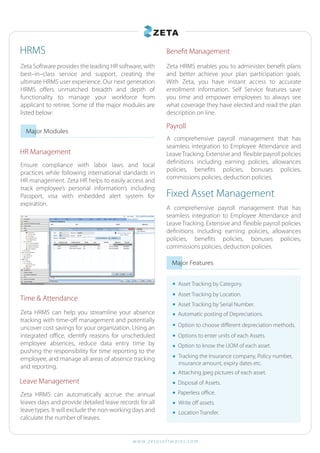Navigating the Depreciations Chart in SAP: A Complete Information
Associated Articles: Navigating the Depreciations Chart in SAP: A Complete Information
Introduction
With enthusiasm, let’s navigate by way of the intriguing subject associated to Navigating the Depreciations Chart in SAP: A Complete Information. Let’s weave fascinating info and provide contemporary views to the readers.
Desk of Content material
Navigating the Depreciations Chart in SAP: A Complete Information

Depreciation, the systematic allocation of an asset’s value over its helpful life, is an important accounting course of. In SAP, this course of is managed by way of a posh but highly effective system involving numerous tables and configurations. Understanding these intricacies is important for sustaining correct monetary data and adhering to accounting requirements. This text delves into the important thing SAP tables associated to depreciation, offering a complete overview of their construction, interrelationships, and sensible functions.
Understanding the Depreciation Course of in SAP
Earlier than diving into the precise tables, it is essential to grasp the general depreciation course of inside the SAP panorama. The method sometimes entails:
-
Asset Grasp Knowledge: Creating an asset report within the asset grasp (desk ANLA) containing particulars like acquisition value, helpful life, depreciation technique, and depreciation key. The depreciation key is an important factor, linking the asset to a selected depreciation technique and parameters.
-
Depreciation Key: This key (outlined in desk AFAB) dictates the strategy of depreciation (e.g., straight-line, declining stability, sum-of-the-years’ digits) and different related parameters. It acts as a template for the depreciation calculation.
-
Depreciation Calculation: SAP’s depreciation engine calculates the depreciation quantity based mostly on the asset’s grasp information and the chosen depreciation key. This calculation is carried out periodically (e.g., month-to-month, quarterly, yearly).
-
Posting Depreciation: The calculated depreciation is posted to the overall ledger, impacting the asset’s ebook worth and the revenue assertion.
-
Reporting and Evaluation: SAP gives numerous stories and analyses to watch depreciation, offering insights into asset values, depreciation bills, and different related metrics.
Key SAP Tables for Depreciation
A number of SAP tables play essential roles in managing depreciation. An important ones are:
-
ANLA (Asset Grasp Knowledge): That is the central desk for asset info. It comprises particulars like asset quantity, description, acquisition value, helpful life, depreciation key, and gathered depreciation. It is the inspiration for all depreciation calculations. Key fields embrace:
-
ANLN1: Asset quantity -
BUKRS: Firm code -
ASTKZ: Asset class -
AFABE: Depreciation key -
ABRDT: Acquisition date -
ANLBV: Internet ebook worth -
AWLBN: Gathered depreciation
-
-
AFAB (Depreciation Key): This desk defines the depreciation strategies and parameters used for calculating depreciation. Every depreciation key has a novel code, which is linked to the asset grasp information. Necessary fields embrace:
-
AFABE: Depreciation key -
METH: Depreciation technique (e.g., straight-line, declining stability) -
PERC: Depreciation share -
LIFES: Helpful life
-
-
ANAH (Asset Historical past): This desk shops the historical past of depreciation postings for every asset. It tracks adjustments in asset worth, depreciation quantities, and different related info over time. This desk is important for auditing and evaluation. Key fields embrace:
-
ANLN1: Asset quantity -
GJAHR: Fiscal 12 months -
MONAT: Month -
AWLBN: Gathered depreciation -
ANLBV: Internet ebook worth
-
-
ANEP (Depreciation Postings): This desk comprises the main points of every particular person depreciation posting. It hyperlinks to the asset grasp information and gives granular details about the depreciation quantities posted to the overall ledger. Necessary fields embrace:
-
ANLN1: Asset quantity -
BUKRS: Firm code -
GJAHR: Fiscal 12 months -
MONAT: Month -
DABS1: Depreciation quantity
-
-
AOAB (Asset Class): Whereas in a roundabout way associated to depreciation calculation, this desk defines the traits of various asset courses. It is essential as a result of the asset class is linked to the asset grasp information, and sure depreciation parameters will be pre-defined on the asset class degree. Key fields embrace:
-
ASTKZ: Asset class -
TXT01: Description -
ABRLF: Helpful life
-
-
AW01N (Asset Explorer): This isn’t a desk however a transaction code in SAP that gives a user-friendly interface for viewing and managing asset information, together with depreciation info. It permits for detailed evaluation and reporting.
Relationships between Tables
These tables are interconnected, forming a complete system for managing depreciation. For instance:
- The
ANLAdesk’sAFABEarea hyperlinks to theAFABdesk’sAFABEarea, defining the depreciation technique used for a selected asset. - The
ANLAdesk’sANLN1area hyperlinks to theANAHdesk’sANLN1area, offering the historic depreciation information for every asset. - The
ANLAdesk’sANLN1area and different fields hyperlink to theANEPdesk, offering particulars of particular person depreciation postings. -
AOABinfluencesANLAbecause the asset class outlined inAOABinfluences the default values and parameters that may be assigned to belongings inANLA.
Sensible Functions and Knowledge Evaluation
Understanding these tables permits for numerous sensible functions, together with:
-
Auditing: The
ANAHandANEPtables are essential for auditing depreciation calculations, making certain accuracy and compliance with accounting requirements. -
Reporting: These tables present the info for producing numerous depreciation stories, corresponding to depreciation expense stories, asset worth stories, and depreciation schedules.
-
Troubleshooting: Analyzing information in these tables helps determine and resolve points associated to depreciation calculations and postings.
-
Efficiency Monitoring: Analyzing depreciation information may also help determine belongings which might be depreciating quicker than anticipated, doubtlessly indicating upkeep wants or obsolescence.
-
Tax Compliance: Correct depreciation calculations are essential for tax compliance. These tables present the mandatory information for getting ready tax returns.
Conclusion
The SAP depreciation system, whereas advanced, is important for correct monetary reporting. Understanding the important thing tables – ANLA, AFAB, ANAH, ANEP, and AOAB – and their interrelationships is paramount for efficient asset administration and monetary management. By leveraging the knowledge contained inside these tables, companies can acquire invaluable insights into their asset base, optimize depreciation methods, and guarantee compliance with related accounting requirements. Accessing and analyzing information from these tables, both instantly by way of SQL queries or not directly by way of SAP’s reporting instruments, is essential for gaining a whole understanding of the depreciation course of and its influence on the monetary well being of the group. Moreover, understanding the transaction code AW01N permits for a extra user-friendly method to exploring and managing this information. This data empowers monetary professionals to make knowledgeable choices and keep the integrity of their monetary data.







Closure
Thus, we hope this text has supplied invaluable insights into Navigating the Depreciations Chart in SAP: A Complete Information. We respect your consideration to our article. See you in our subsequent article!
